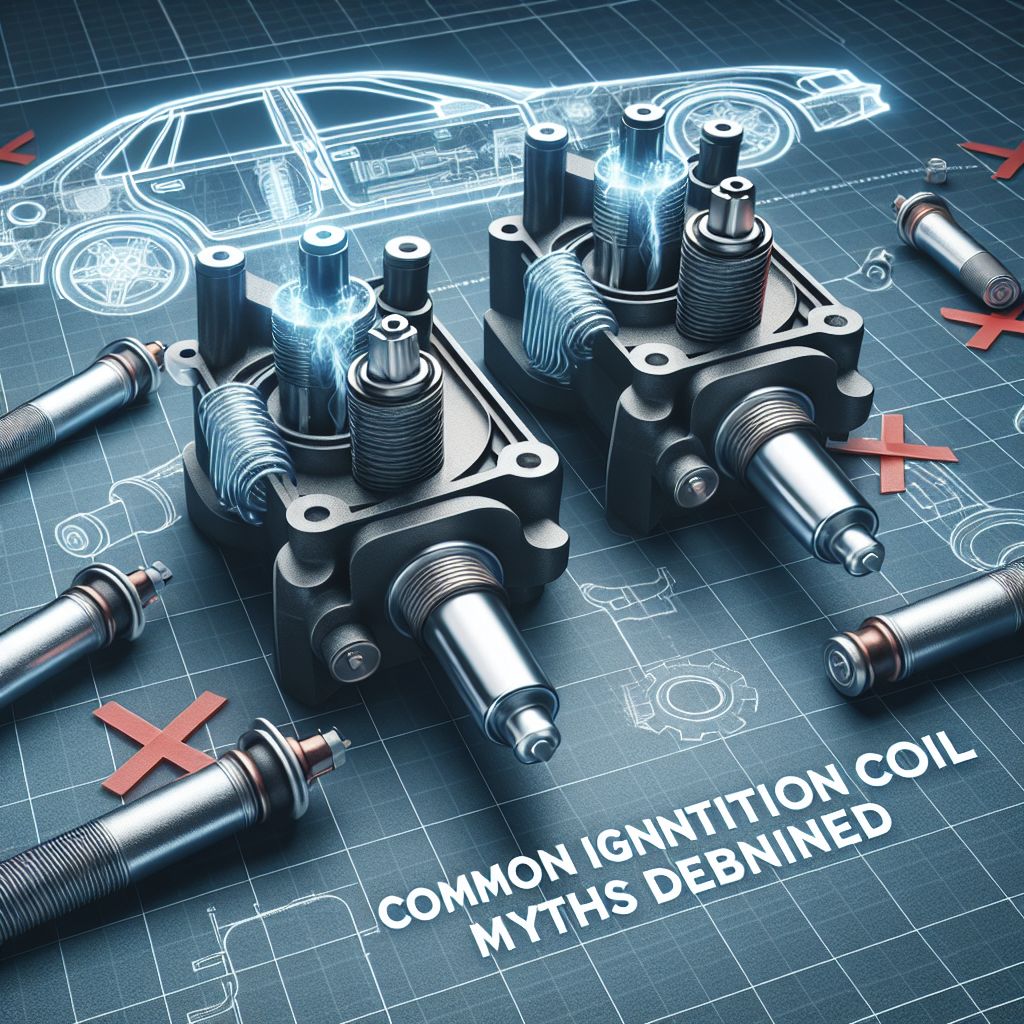When it comes to maintaining your vehicle’s performance, ignition coils play a pivotal role. Despite their importance, these components are often misunderstood, which can lead to several misconceptions. Here, we aim to debunk some of the most common myths surrounding ignition coils to provide a clearer understanding of their function and maintenance.
One prevalent myth is that ignition coils rarely fail and don’t need regular checking. While ignition coils are designed to last a long time, they are not invincible. Factors such as heat, vibration, and electrical stresses can all contribute to their wear and tear. Regular inspection can catch potential issues early before they result in complete failure and, consequently, a stalled vehicle or engine misfires.
Another widely held misconception is that all ignition coils are the same and can be used interchangeably. In reality, different vehicles require different types of ignition coils. Using the wrong coil type can not only degrade your vehicle’s performance but, in worst-case scenarios, also damage the engine. Always refer to your vehicle’s manual or consult a trusted auto parts expert when replacing an ignition coil.
A third myth that we often encounter is that replacing an ignition coil will fix all ignition-related problems. While a faulty ignition coil can indeed cause engine misfires and starting issues, the ignition system is complex and involves various components such as spark plugs, ignition wires, and the control module. Thorough diagnostics are crucial to pinpoint the exact cause, which may require attention beyond merely replacing the ignition coil.
Some car owners also believe that a single failed ignition coil necessitates replacing all coils. Although changing all coils can sometimes be prudent, especially if they’ve experienced similar wear and tear, it is not always necessary. If one coil fails prematurely, it doesn’t automatically mean that the others will follow suit. Conducting individual coil tests can help you determine whether a broader replacement is warranted.
Moreover, there’s a myth suggesting that aftermarket ignition coils are inherently inferior to original equipment manufacturer (OEM) coils. Truth be told, many high-quality aftermarket ignition coils match or even exceed OEM specifications. The key lies in choosing reputable brands with good reviews and proven performance.
Lastly, some people think that diagnosing a bad ignition coil requires specialized, expensive tools. On the contrary, most ignition coil diagnostics can be performed using basic tools like a multimeter and a spark tester. For more complex issues, professional diagnostics may be necessary, but for the average DIYer, basic tests can often reveal the problem.
Understanding these myths and the truths behind them can not only save you money but also enhance your vehicle’s reliability. It’s always helpful to gather more information from trusted industry sources such as this comprehensive guide from Car and Driver. By debunking these myths, we hope you are now better equipped to maintain your ignition system and keep your vehicle running smoothly.
For top-quality ignition coils and other auto parts, visit patrickderekfletcher.com, your one-stop shop for all things automotive. Happy driving!

